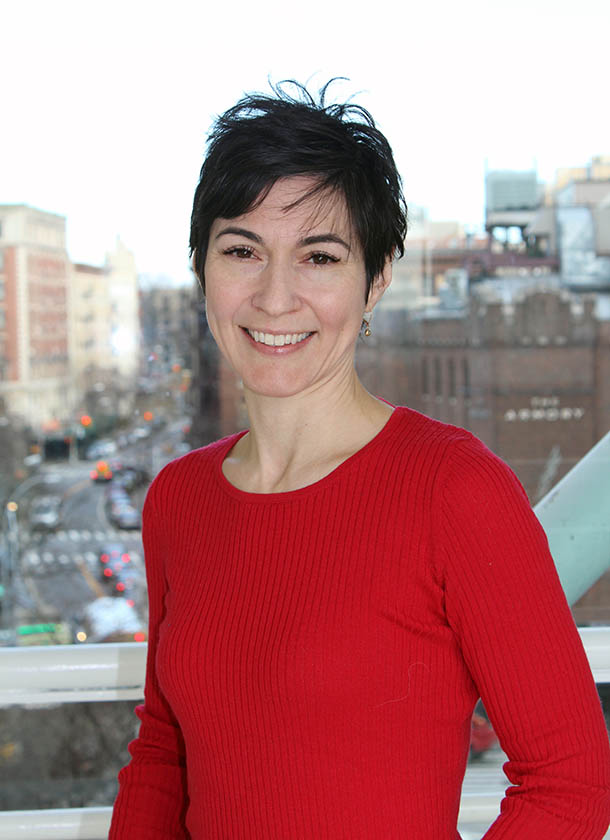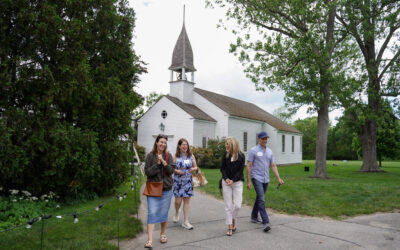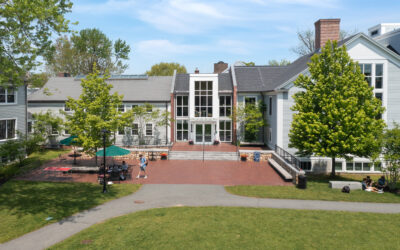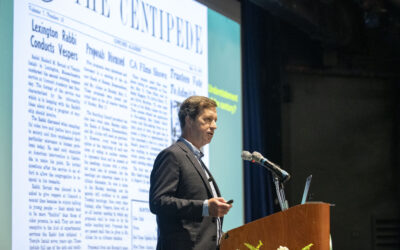A stroke specialist becomes a Covid-19 doctor
A vascular neurologist and clinical researcher, Eliza Miller ’94, M.D. is an attending neurologist at New York-Presbyterian Hospital in Manhattan and an assistant professor of neurology at Columbia University Medical Center. Her clinical research focuses on stroke in women. She has just returned to work after being home sick with Covid-19 symptoms. Follow her on Twitter: @ElizaMillerMD.
As New York City hunkered down to try to slow the spread of the novel coronavirus, at first Eliza Miller’s main concern was that her hospital would not have the resources, including beds and ventilators, to care for acute stroke patients. “The hospital has been amazing at expanding capacity and so far that hasn’t been a problem, but it may still get worse,” she says. “At this point, our entire hospital has been converted to a Covid-19 hospital and many of the stroke patients seem to have Covid-19 anyway. People are not coming to the hospital for ‘minor’ strokes (this is bad — they should come) and so the stroke patients we have are really sick, the ones who can’t possibly stay home. The neurological intensive care unit and stroke units are filled with Covid-19 patients. Neurology residents, fellows, and attendings are being redeployed to various parts of the hospital. We are all Covid-19 doctors now.”
Miller became sick herself, which necessitated staying at home in her New York City apartment with her husband, Justin Samaha ’94, and their three teenagers, which she describes as challenging. But she used her quarantine to catch up on homework. In addition to being a practicing physician and researcher, Miller is also a student again: She will graduate in May with a master’s of science in biostatistics, in patient-oriented research, from Columbia’s Mailman School of Public Health.
Though she was very glad to get back to work on April 6, Miller stopped by the emergency department after her telemedicine clinic to be evaluated because she was short of breath. “The symptoms are no joke, and I keep being surprised by how it hits me again just when I think I’ve recovered,” she says. “Luckily I was fine, and they sent me home.”
The epidemic in New York still hasn’t yet reached its peak, and Miller anticipates being redeployed in the next week or so. In addition, she is checking on several outpatients who have contracted Covid-19 via what she calls “virtual house calls.” All of her patients are at high risk — they’ve all had a stroke at some point, many are older, and most have multiple comorbidities.

“We are all Covid-19 doctors now.”
– Eliza Miller ’94
The switch to practicing online wasn’t difficult for Miller, who says stroke specialists are far more familiar with telemedicine than most doctors, accustomed as they are to managing acute stroke patients in this way at hospitals where there are no in-house neurologists. “This expertise has been really helpful as we transition all kinds of things to telemedicine that didn’t seem possible before,” she says. “Of course, some things have to be done in person. Doing telemedicine well requires extremely good communication skills and ability to collaborate with the people who are on the ground with the patient, whether that’s their family member at home, or an emergency department nurse who helps you examine the patient. So all those communication and listening skills from CA really are put to good use here!”
Miller is frustrated by the inequality that has contributed to the dire struggle the United States is facing. “I hope people will have a better understanding of how social inequities directly result in health disparities,” she says. Asked what is the best way for people to honor medical providers who are being put in positions of great risk right now, she says simply, “Vote!”
Connections with colleagues are what keeps Miller going. “The best thing about academic medicine is that the people who practice it tend to be really interesting, smart, dedicated, creative, collaborative, and funny,” she says. “And it’s not just the doctors. It’s also the scientists — epidemiologists, bench researchers, and clinical researchers. It’s phenomenal how the entire mammoth research operation at Columbia has spun on a dime and suddenly everyone is researching Covid-19. I know we are going to solve this problem, and I want to be part of that.”
“I know we are going to solve this problem, and I want to be part of that.”
– Eliza Miller ’94
For Miller, pivoting to fight the pandemic hasn’t changed her enthusiasm for her work, or the reasons she does it. “I sometimes tell pre-med students, ‘If your goal in life is to help people, there are a lot of better ways to do it than being a doctor. Sometimes you help people, but a lot of times you can’t. You should go into medicine only if you find it completely fascinating and fun,’” she says.
The courage to follow that passion is something she traces, in part, to Concord Academy. As a high school student, Miller was torn between art and science. She wanted to be a dancer, mostly because of the influence of longtime CA dance teachers Amy Spencer and Richard Colton. “They are such amazing artists and mentors,” Miller says. She did pursue dance for a number of years after graduating from Sarah Lawrence. Then in her late 20s, after having children, she changed direction, fulfilling her pre-med requirements at the City College of New York.
Miller started medical school at Columbia at age 32 and later completed her residency and fellowship training there as well. Now she’s on the faculty there, and also an NIH-funded physician-scientist. “I think CA gave me the courage and confidence to know that if I was interested in something, and I love it, I should do it, and I could succeed,” she says. “A lot of people thought it was completely nuts to try to go to medical school at that age, with three little kids. It seemed like a good idea to me.”
“I think CA taught me to follow my curiosity, and listen to it,” Miller says. “This has served me well in everything I’ve done since, whether it’s being a choreographer, being a doctor, or being a scientist. Also, you know, I married my Concord Academy sweetheart, and I certainly could not have done any of the things I’ve done without his total, unwavering support.”


